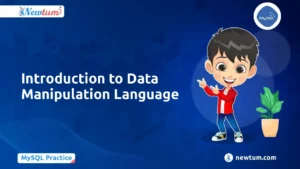Strings are an essential part of programming, allowing developers to handle and manipulate text data efficiently. From storing names and messages to processing user inputs, strings play a crucial role in various applications such as data processing, file handling, and communication between systems.
Unlike other modern programming languages that provide built-in string data types, C treats strings as arrays of characters. This unique characteristic requires programmers to manage memory and string operations manually. In C, strings are null-terminated, meaning they end with a special character ('\0'), which indicates the end of the text. Understanding how strings work in C is fundamental for effective text manipulation and memory management.
Defining Strings in C
Null-Terminated Strings
A string in C is essentially a character array that ends with a null character ('\0'). This null terminator differentiates a valid string from random memory data.
String Representation in C
C does not provide a dedicated string type like Python or Java. Instead, strings are represented as character arrays, and functions from the string.h library are used for manipulation.
Declaring and Initializing Strings
There are multiple ways to declare and initialize strings in C:
- Using a Character Array
char str1[] = "Hello"; // Null character '\0' is added automatically - Explicitly Defining the Character Array
char str2[] = {'H', 'e', 'l', 'l', 'o', '\0'}; - Using a Pointer to a String Literal
char *str3 = "Hello"; // Stored in read-only memory, modification is not allowed - Dynamically Allocating Strings
char *str4 = (char *)malloc(6 * sizeof(char)); strcpy(str4, "Hello");
Each method has its use cases, but it is crucial to ensure proper memory management when using dynamic allocation to avoid memory leaks.
By understanding how C handles strings, programmers can efficiently manipulate text data while maintaining control over memory usage.
String Literals and Storage
How String Literals are Stored in Memory
In C, string literals are stored in a read-only section of memory, usually within the text segment of a program. When a string literal is assigned to a pointer, it points to this read-only memory location.
For example:
char *str = "Hello, World!";
- Here,
"Hello, World!"is stored in a read-only memory section. strpoints to the first character of this memory location.
Immutability of String Literals and Modification Risks
String literals in C should not be modified, as attempting to change them can lead to undefined behavior or segmentation faults.
For instance:
char *str = "Hello"; str[0] = 'M'; // ❌ Undefined behavior (modifying a string literal)
Safe Alternative: Use a character array instead:
char str[] = "Hello"; str[0] = 'M'; // ✅ Allowed, as 'str' is stored in modifiable memory
Common String Operations in C
The C standard library provides various functions in string.h for string manipulation. Below are some commonly used string operations with examples:
1. String Copying (strcpy() and strncpy())
Using strcpy() (Copies the entire string, including the null terminator)
#include <stdio.h>
#include <string.h>
int main() {
char src[] = "Hello, C!";
char dest[20]; // Ensure destination has enough space
strcpy(dest, src);
printf("Copied String: %s\n", dest);
return 0;
}
Using strncpy() (Safer alternative, prevents buffer overflow)
#include <stdio.h>
#include <string.h>
int main() {
char src[] = "Hello, C!";
char dest[6];
strncpy(dest, src, 5);
dest[5] = '\0'; // Ensure null termination manually
printf("Copied String (with strncpy): %s\n", dest);
return 0;
}
2. String Concatenation (strcat() and strncat())
Using strcat() (Appends one string to another)
#include <stdio.h>
#include <string.h>
int main() {
char str1[20] = "Hello, ";
char str2[] = "World!";
strcat(str1, str2); // str1 must have enough space
printf("Concatenated String: %s\n", str1);
return 0;
}
Using strncat() (Safer version with size limitation)
#include <stdio.h>
#include <string.h>
int main() {
char str1[20] = "Hello, ";
char str2[] = "World!";
strncat(str1, str2, 3); // Appends only first 3 chars of str2
printf("Concatenated String (with strncat): %s\n", str1);
return 0;
}
3. String Comparison (strcmp() and strncmp())
Using strcmp() (Compares two strings)
#include <stdio.h>
#include <string.h>
int main() {
char str1[] = "Apple";
char str2[] = "Banana";
int result = strcmp(str1, str2);
if (result == 0)
printf("Strings are equal.\n");
else if (result < 0)
printf("str1 comes before str2.\n");
else
printf("str1 comes after str2.\n");
return 0;
}
Using strncmp() (Compares only the first n characters)
#include <stdio.h>
#include <string.h>
int main() {
char str1[] = "Apple";
char str2[] = "Application";
int result = strncmp(str1, str2, 3);
if (result == 0)
printf("First 3 characters are the same.\n");
else
printf("First 3 characters are different.\n");
return 0;
}
4. String Length (strlen())
Using strlen() (Finds the length of a string)
#include <stdio.h>
#include <string.h>
int main() {
char str[] = "Hello, World!";
printf("Length of the string: %lu\n", strlen(str));
return 0;
}
strlen()returns the number of characters before'\0', excluding the null terminator.
Summary of String Operations
| Operation | Function | Description |
|---|---|---|
| String Copying | strcpy() | Copies one string to another. |
| String Copying (Safe) | strncpy() | Copies a limited number of characters to avoid overflow. |
| String Concatenation | strcat() | Appends one string to another. |
| String Concatenation (Safe) | strncat() | Appends a limited number of characters. |
| String Comparison | strcmp() | Compares two strings. |
| String Comparison (Partial) | strncmp() | Compares only the first n characters. |
| String Length | strlen() | Returns the length of a string (excluding '\0'). |
By understanding these operations, C programmers can efficiently handle and manipulate text data while ensuring safety and performance.
Handling Wide Characters and Strings in C
Introduction to Wide Characters and Wide Strings (wchar_t)
In standard C, characters are typically stored using 8-bit ASCII encoding. However, this is insufficient for internationalization and Unicode support, which require handling a broader range of characters.
C provides wide characters (wchar_t) and wide strings (wchar_t[]) to accommodate multibyte characters, including those from Unicode. The wchar_t type is typically 16-bit or 32-bit, depending on the system, and is defined in wchar.h.
Importance of Wide Strings for Unicode Support
- Supports Internationalization: Essential for handling languages like Chinese, Japanese, and Arabic.
- Encodes Unicode Characters: Can store extended character sets (UTF-16, UTF-32).
- Prevents Data Loss: Using
charmay not store all Unicode characters correctly.
Wide String Declarations and Operations
Declaring Wide Characters and Wide Strings
#include <wchar.h>
#include <stdio.h>
int main() {
wchar_t wch = L'₹'; // Wide character (Indian Rupee Symbol)
wchar_t wstr[] = L"Hello, 世界!"; // Wide string (contains Chinese characters)
wprintf(L"Wide Character: %lc\n", wch);
wprintf(L"Wide String: %ls\n", wstr);
return 0;
}
L""is used to define wide string literals.wprintf()is used instead ofprintf()for wide strings.
Common Wide String Operations
Finding Length of a Wide String (wcslen())
#include <wchar.h>
#include <stdio.h>
int main() {
wchar_t wstr[] = L"Wide String Example";
wprintf(L"Length: %lu\n", wcslen(wstr));
return 0;
}
Copying Wide Strings (wcscpy())
#include <wchar.h>
#include <stdio.h>
int main() {
wchar_t src[] = L"Wide Copy";
wchar_t dest[20];
wcscpy(dest, src);
wprintf(L"Copied Wide String: %ls\n", dest);
return 0;
}
Comparing Wide Strings (wcscmp())
#include <wchar.h>
#include <stdio.h>
int main() {
wchar_t str1[] = L"Hello";
wchar_t str2[] = L"World";
if (wcscmp(str1, str2) == 0)
wprintf(L"Strings are equal\n");
else
wprintf(L"Strings are different\n");
return 0;
}
Common Pitfalls in String Handling in C
1. Buffer Overflows
Issue:
- Using
gets()orstrcpy()without checking buffer size can lead to buffer overflows, causing memory corruption or security vulnerabilities.
Example of Unsafe Code (Buffer Overflow)
char str[10]; gets(str); // ❌ Dangerous: No size limit, may overwrite memory
Best Practice: Use fgets() instead of gets().
fgets(str, sizeof(str), stdin); // ✅ Safe alternative
2. Missing Null Terminators ('\0')
Issue:
If a string is not properly null-terminated, it may lead to undefined behavior, as functions like strlen() and strcpy() rely on '\0'.
Example of a Missing Null Terminator
char str[5] = {'H', 'e', 'l', 'l', 'o'}; // ❌ No null terminator
printf("%s", str); // Undefined behavior
Best Practice: Always ensure null termination.
char str[6] = "Hello"; // ✅ Properly null-terminated
3. Immutable String Literals
Issue:
Modifying a string literal stored in read-only memory causes undefined behavior.
Example of Unsafe Modification
char *str = "Hello"; str[0] = 'M'; // ❌ Undefined behavior
Best Practice: Use a character array instead of a pointer.
char str[] = "Hello"; // ✅ Safe modification str[0] = 'M';
Best Practices to Avoid String Handling Pitfalls
| Pitfall | Best Practice |
|---|---|
| Buffer Overflow | Use fgets() instead of gets() and strncpy() instead of strcpy(). |
| Missing Null Terminators | Always allocate an extra byte for '\0' in character arrays. |
| Modifying String Literals | Use char str[] = "text"; instead of char *str = "text"; to store modifiable strings. |
| Wide String Handling | Use wchar_t, wcslen(), and wcscpy() for Unicode text processing. |
By following these best practices, you can write secure, efficient, and reliable C programs that handle strings effectively.
Conclusion
Strings are essential in C programming, but improper handling can lead to security risks and bugs. Understanding string operations, wide characters, and common pitfalls ensures safer coding. Always use best practices like proper memory allocation, null termination, and secure functions. Practice these techniques to write robust and secure C programs. Visit to Newtum for more blogs and courses of various programming language.



